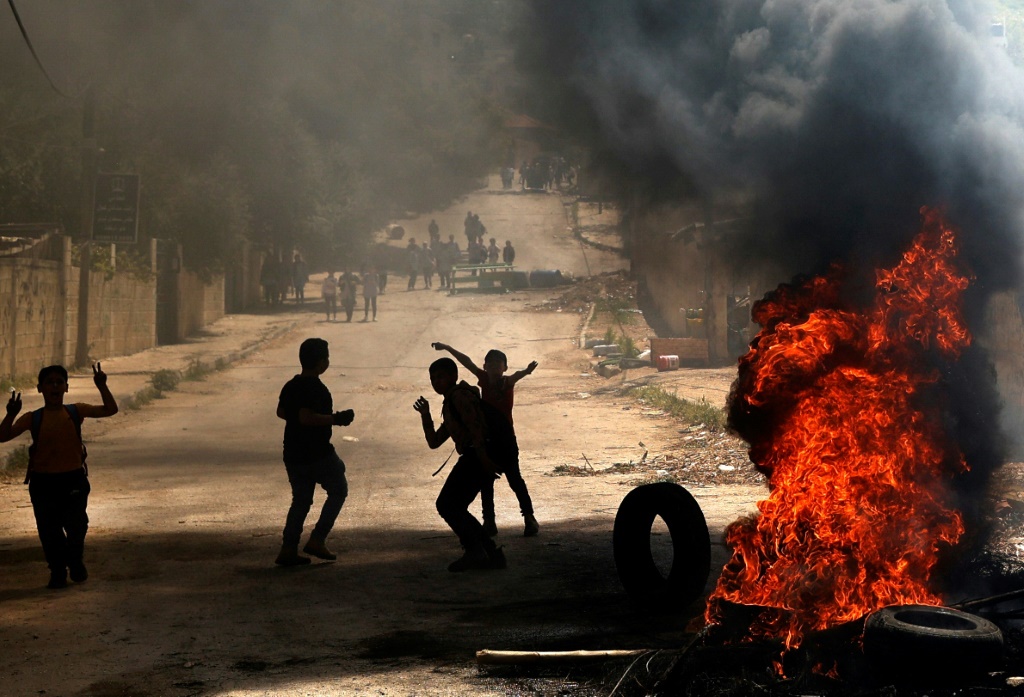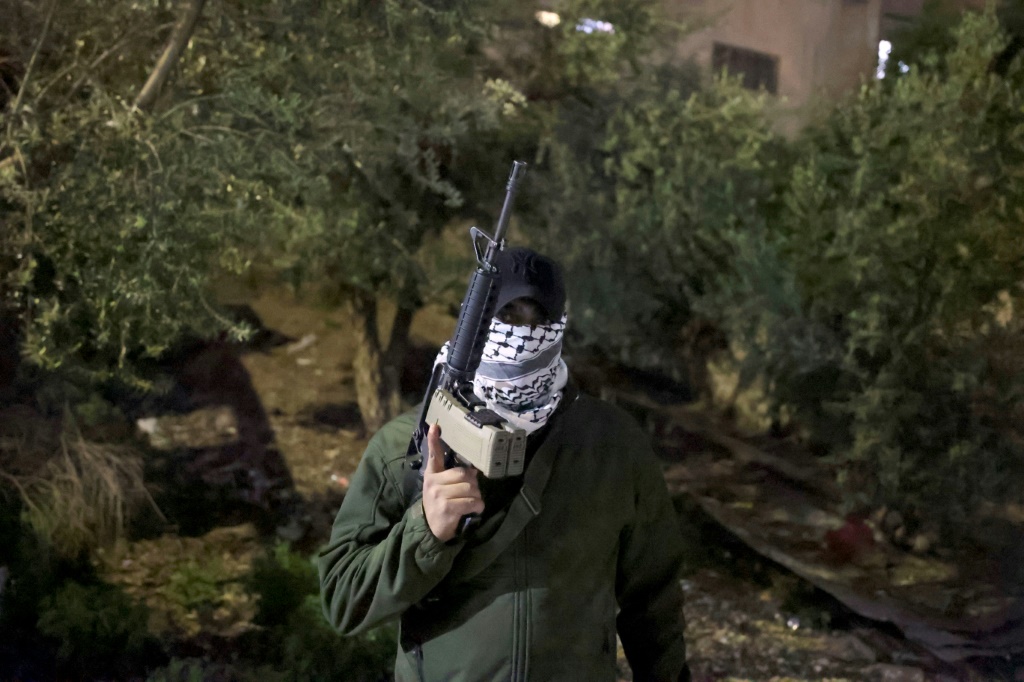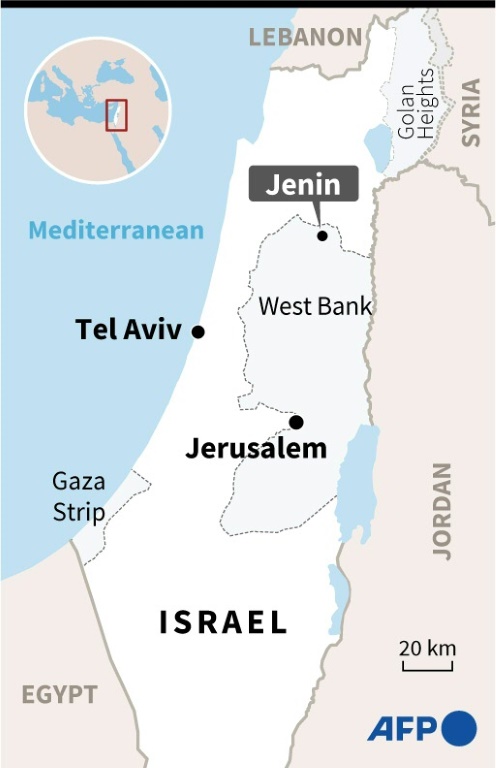WAR IS RAPE
Russia's war on Ukraine: Sexual violence as a weapon of war
It’s possible that I shall make an ass of myself. But in that case one can always get out of it with a little dialectic. I have, of course, so worded my proposition as to be right either way (K.Marx, Letter to F.Engels on the Indian Mutiny)
WAR IS RAPE
Russia's war on Ukraine: Sexual violence as a weapon of war
Mass graves and destruction in Bucha and Hostomel
Now that Russian troops have withdrawn, Kyiv's suburbs are being cleared of mines – and bodies are being exhumed. DW's Alexander Savitsky reports from Hostomel and Bucha, where journalists have been granted access again.

Kyiv's northwestern suburbs of Bucha and Hostomel are in ruins
It is an eerie scene. Hostomel was one of a group of pleasant suburbs on the northwestern edge of Kyiv. Now, following the withdrawal of Russian troops, its streets are empty. The first blossom is on the trees, spring birdsong is in the air – but there is also the creaking of broken metal lampposts, and the barking of stray dogs that have lost their owners. The asphalt is strewn with fallen electricity pylons and decimated fences. With every step, broken glass crunches underfoot.
There are burnt-out houses, garages, and cars everywhere. Many of the buildings are five-story apartment blocks – the majority now have no roof. Shooting and shock waves have shattered the windows. On one of the remaining balconies, some laundry flutters in the wind, abandoned in the panic of the Russian invasion. In all the time we – a group of journalists – are in Hostomel, the only other people we see are one man and one woman, middle-aged, who turn toward the press buses with hope in their eyes.
Hostomel airport, around 20 kilometers (12 miles) from Kyiv, was the main hub of Antonov Airlines. It is known for its cargo planes, which include the biggest aircraft in the world: the Antonov An-225 "Mriya" – "Dream." The road to the airport has been badly damaged by shelling. A billboard with a portrait of the aircraft designer Oleh Antonov, after whom the cargo and passenger plane manufacturing company is named, remains undamaged. There is a great deal of burned-out Russian military equipment scattered about the airfield. Shells have gouged craters in the earth. After days of bombardment, the doors, walls and roofs of the hangars are riddled with holes.
All that remains of the only An-225 "Mriya" are its nose cone and wings, with the remains of the six engines. The enormous aircraft's burnt-out interior is visible through a gaping hole in the middle. We journalists are allowed to take photos of the uncanny sight, but we can't get too close to the debris, as the airfield is still littered with heavy machine gun cartridges and unexploded ordnance. "The experts will only be able to inspect the plane and establish the cause of the fire once the area has been cleared," says Ukraine's minister of internal affairs, Denys Monastyrskiy, who is accompanying us.

After fierce battles at the airport of Hostomel, Ukrainian forces managed to recapture it
Monastyrskiy says the Russian invaders occupied the airfield on the very first day of the assault on Kyiv, February 24. Dozens of Russian helicopter gunships flew in very low over the Kyiv reservoir, so as to be invisible to radar. The first 500 Russian paratroopers then landed in Hostomel. "The Ukrainian defenders succeeded in shooting down six enemy helicopters in an extremely brutal battle," the minister says. He tells us that hundreds of paratroopers were killed, and the Ukrainian military, using rocket launchers, also wiped out one of Chechen leader Ramzan Kadyrov's elite units with all its equipment.
Monastyrskiy says the Russians subsequently sent such massive reinforcements that they were able to take the airport and the town. The intention, the minister says, was for Hostomel to serve as a landing place for Russian forces that would conquer and occupy Kyiv. However, the Ukrainians had blown up the runway, and eventually, after more fierce battles, they forced the invaders to retreat. "But Kyiv is not out of danger," Monastyrskiy says. "We are preparing for the possibility of fresh attacks."

Many civilians were shot dead with sniper rifles or machine gun fire
Hostomel and Bucha are directly adjacent: Only a town park marks the administrative boundary between the two. But the difference now is astonishing. Just one week after Bucha was liberated from Russian occupation, there is life in the town again. We see people and civilian cars; more houses here are intact than in Hostomel. Here too, though, damaged buildings, wrecked supermarkets, and roadblocks are reminders of the recent battles.
And the peaceful impression is deceptive. The images of bodies on the streets of Bucha are still fresh in the mind, not only for the town's inhabitants but for people all over the world. Even as municipal services are busy clearing the streets, graves are also being dug up, providing more and more evidence of the murder of civilians.
The press bus stops at an Orthodox church. Beside it, bodies are being exhumed from a deep pit. The workers are wearing white protective suits, while the dead lie in black plastic sacks. The priest says many people from Bucha who had lost contact with members of their family are fearfully watching the opening of the graves. "They're hoping that they won't find their relatives among the dead. They're hoping that perhaps they've been taken prisoner, or are in hospital, but have at least survived." The body bags are open, the faces of the dead visible; by now, though, most of them have turned black.

The dead are being exhumed from mass graves to identify them
Andriy Nebytov from the National Police, Kyiv region, tells the reporters that, so far, 40 people have been found in the grave beside the church. A municipal employee got permission from the Russian occupiers to collect the bodies from the streets of the town. "We are now handing over the corpses to forensic experts," Nebytov says. "Many have bullet wounds to the head or on their bodies. We can say that they were targeted and shot with machine guns or sniper rifles."
The police chief says that, with the exception of two military personnel, the dead are male and female civilians of different ages. "In addition to these 40 bodies, more than 400 from the entire Kyiv region have been taken to forensic institutions," says Nebytov. "More than 360 of these are from Bucha, Hostomel and Irpin." And the search is not over yet: "Many people were buried in gardens, because they couldn't be taken to the graveyards during the shelling," he explains.
This article has been translated from Russian.



EU uses development aid to strongarm Africa on migration
EU development programs like the Emergency Trust Fund for Africa prioritize curbing migration over fostering development, critics say. How does the EUTF square with the stated aims of the European Union's aid policies?

As the EU tries to curb irregular migration to Europe, development aid gets co-opted for leverage
In raw numbers, the European Union and its members provide the most development aid in the world, about €75 billion in 2019 alone. About one-third of that aid currently goes to Africa. With historical inequities keeping African nations at a disadvantage in negotiations, EU countries often use development funds as levers for their own political agendas. In recent years, migration control has been at the forefront of these efforts.
Africa has been the focus of Western European development policy since the precursors to the EU were established in the 1950s. With large parts of Africa still colonized by the inheritor states of the European empires, structures such as the European Development Fund aimed to continue the development policies of the former empires, historian Sara Lorenzini said: "The idea was to build European-style welfare states in the colonies and for Europe to retain geopolitical weight as a third force during the Cold War."
As African nations started to gain independence in the 1960s, development policies allowed European countries to maintain their influence on the continent.
Political agendas continue to shape where aid goes — and which projects get prioritized. "The main agenda in Africa continues to be geopolitical," said Jan Orbie, the director of the Centre for EU Studies at Ghent University. "In the past 10 years, development policy has become more connected to migration, to energy policy, to trade."
Data on official development aid collected by the Organisation for Economic Co-operation and Development (OECD) shows, for example, that EU institutions and member states spend a lot more of their development aid north of the Sahara than other donors do — often in countries considered the origin or transit states for migrants who make their way to the European Union.

One instrument that exemplifies the European Union's focus on migration control is the EU Emergency Trust Fund for Africa, which just concluded its six-year funding period. After large numbers of irregular migrants reached the European Union in 2015, EU policymakers were eager to prevent a repeat. A result of the ensuing negotiations was the now roughly €5 billion in "emergency" project funding for the EUTF, largely redirected from existing development funds. Its purpose was to dispense money quickly — without much parliamentary oversight and the bureaucracy it would bring. "The trust fund illustrates that the EU can act very quickly, efficiently and cohesively when it wants to," Orbie said. "Whether that's a good thing is another question."
The funds are officially meant to "address root causes of irregular migration" in the recipient countries. But the priority of policymakers seems to be to prevent migrants from arriving at EU borders, as an Oxfam report found. In one board meeting, the head of the Directorate General for European Neighbourhood Policy and Enlargement Negotiations, Christian Danielsson, happily asserted how the EUTF for Africa had "confirmed its value in supporting an effective management of migration flows from, to and within" North Africa.

The Oxfam report also found that most of the funding goes to development cooperation projects in nations perceived as countries of origin for migrants, while transit countries receive more money for migration management projects. Only about 1% of the EUTF, €56 million, was spent on fostering legal pathways for African migrants.
The fund's total volume may not seem like much: €5 billion in funding commitments, spread over five years and about 30 recipient countries. Between 2016 and 2020, the time period for which the OECD provides complete data, official development aid donors committed over $1.7 trillion (€1.6 trillion) to these countries, with about one-third of that coming from the European Union and its member states.

But the EUTF often goes hand in hand with other funds managed by the European Union and its member states — and the political interests behind them. Refusing to cooperate with one program might disadvantage recipient countries when it comes to future funding.
And the money from the EUTF still makes a difference in individual countries. The fund makes up more than a third of the total EU development money that goes to Sudan and Libya, which also receive among the highest absolute sums from the EUTF.

Even countries with more diverse funding sources can be susceptible to political pressure from the European Union. "African countries now have to negotiate about migration so that they can get aid, they can gain access to foreign currency and other diplomatic support," said Mehari Taddele Maru, a professor at the Migration Policy Centre and formerly the program coordinator for migration at the African Union Commission.
In 2017, for example, the European Union negotiated a deal with Ethiopia to accelerate the return of nationals deported from EU countries, voluntarily or involuntarily. The European Council attributes Ethiopia's cooperation to "the financial instruments ... in particular the EU Trust Fund." Records on EUTF projects show that Ethiopia was allocated funding at first in December 2016. Then funding flows stopped for almost the entire year of 2017. Days after the agreement had been reached, €14 million in EUTF funding for "stimulating economic opportunities and job creation for refugees and host communities in Ethiopia" was approved. The country has now received more than €300 million from the fund.
"The government was cash-starved, so they agreed," Mehari said. "The same with Niger, Nigeria and others: The hardening of borders is happening in Africa because of European intervention."
A study by the German Development Institute suggests that this is particularly the case in West Africa, where EU programming tends to hinder free movement — even within the region. On the Horn of Africa, in contrast, EU interventions tend to support projects that allow people to move freely within the region.
At the end of 2021, the EUTF for Africa stopped accepting new projects. And the European Union is restructuring its development spending. A range of schemes, including the EUTF, will now be combined in one big fund: the Neighbourhood, Development and International Cooperation Instrument (NDICI).

It spans €80 billion for the funding period from 2021 to 2027, 10% of which is designated for migration-management programs. "There were political objectives to have a prominent figure and a clear focus on migration governance," said Anna Knoll, the head of the migration program at the European think tank ECDPM. The acute feeling of emergency guiding EU policymakers in 2015 has passed, but Knoll said the NDICI would likely continue some of the current trends: The European Union retains a strong focus on controlling migration, and it continues to use aid funds as a tool to further EU interests in Africa.
Edited by: Milan Gagnon
This project is a collaboration among several media outlets in the European Data Journalism Network. While DW was project lead, Voxeurop, Openpolis and OBCT were contributing partners.









Amnesty accuses Mali of impunity over stalled war crimes cases
California start-up sending tiny robots on fantastic voyage into brains

Sending miniature robots deep inside the human skull to treat brain disorders has long been the stuff of science fiction—but it could soon become reality, according to a California start-up.
Bionaut Labs plans its first clinical trials on humans in just two years for its tiny injectable robots, which can be carefully guided through the brain using magnets.
"The idea of the micro robot came about way before I was born," said co-founder and CEO Michael Shpigelmacher.
"One of the most famous examples is a book by Isaac Asimov and a film called 'Fantastic Voyage,' where a crew of scientists goes inside a miniaturized spaceship into the brain, to treat a blood clot."
Just as cellphones now contain extremely powerful components that are smaller than a grain of rice, the tech behind micro-robots "that used to be science fiction in the 1950s and 60s" is now "science fact," said Shpigelmacher.
"We want to take that old idea and turn it into reality," the 53-year-old scientist told AFP during a tour of his company's Los Angeles research and development center.
Working with Germany's prestigious Max Planck research institutes, Bionaut Labs settled on using magnetic energy to propel the robots—rather than optical or ultrasonic techniques—because it does not harm the human body.
Magnetic coils placed outside the patient's skull are linked up to a computer that can remotely and delicately maneuver the micro-robot into the affected part of the brain, before removing it via the same route.
The entire apparatus is easily transportable, unlike an MRI, and uses 10 to 100 times less electricity.
'You're stuck'
In a simulation watched by AFP, the robot—a metal cylinder just a few millimeters long, in the shape of a tiny bullet—slowly follows a pre-programed trajectory through a gel-filled container, which emulates the density of the human brain.
Once it nears a pouch filled with blue liquid, the robot is swiftly propelled like a rocket and pierces the sack with its pointed end, allowing liquid to flow out.
Inventors hope to use the robot to pierce fluid-filled cysts within the brain when clinical trials begin in two years.
If successful, the process could be used to treat Dandy-Walker Syndrome, a rare brain malformation affecting children.
Sufferers of the congenital ailment can experience cysts the size of a golf ball, which swell and increase pressure on the brain, triggering a host of dangerous neurological conditions.
Bionaut Labs has already tested its robots on large animals such as sheep and pigs, and "the data shows that the technology is safe for us" human beings, said Shpigelmacher.
If approved, the robots could offer key advantages over existing treatments for brain disorders.
"Today, most brain surgery and brain intervention is limited to straight lines—if you don't have a straight line to the target, you're stuck, you're not going to get there," said Shpigelmacher.
Micro-robotic tech "allows you to reach targets you were not able to reach, and reaching them repeatedly in the safest trajectory possible," he added.
'Heating up'
The US Food and Drug Administration (FDA) last year granted Bionaut Labs approvals that pave the way for clinical trials to treat Dandy-Walker Syndrome, as well as malignant gliomas—cancerous brain tumors often considered to be inoperable.
In the latter case, the micro-robots will be used to inject anti-cancer drugs directly into brain tumors in a "surgical strike."
Existing treatment methods involve bombarding the whole body with drugs, leading to potential severe side effects and loss of effectiveness, said Shpigelmacher.
The micro-robots can also take measurements and collect tissue samples while inside the brain.
Bionaut Labs—which has around 30 employees—has held discussions with partners for the use of its tech to treat other conditions affecting the brain including Parkinson's, epilepsy or strokes.
"To the best of my knowledge, we are the first commercial effort" to design a product of this type with "a clear path to the clinic trials," said Shpigelmacher.
"But I don't think that we will be the only one... This area is heating up."This start-up is building tiny injectable robots to attack tumors
© 2022 AFP
